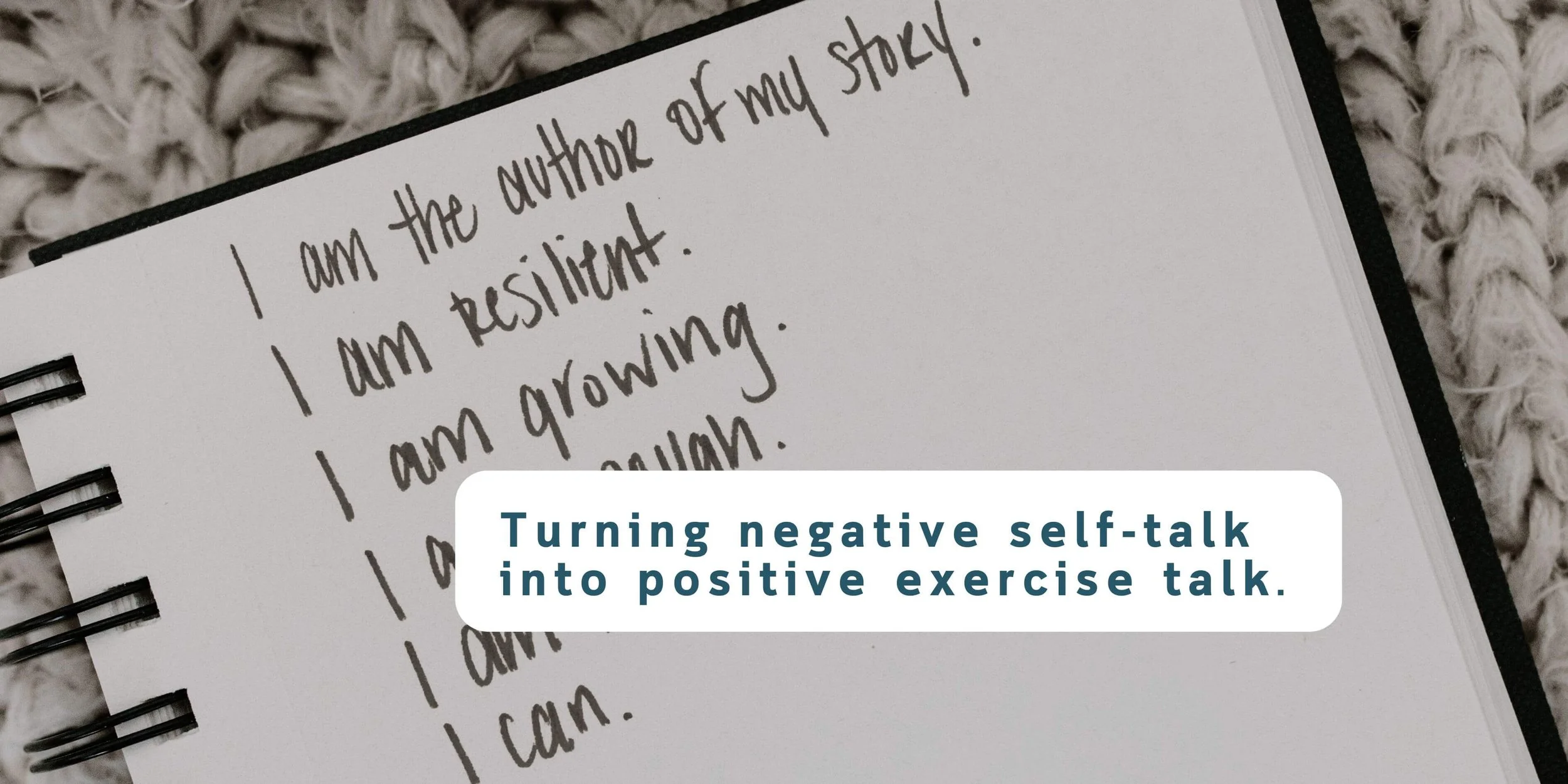Turning negative self-talk into positive exercise talk.
Words can matter; they can either build you up or break you down, so be mindful and kind in your self-talk.
The words you choose to say to yourself can have a powerful impact on your mindset and actions.
When it comes to exercise, shifting from negative to positive self-talk can change your attitude and help you stay consistent in your exercise routine.
By being mindful and kind in your inner dialogue, you set the stage for lasting change.
“Talk to yourself like you would to someone you love”
Use your words as a tool to reach your goals.
“I am strong.”
‘’I am healthy.”
‘’I am beautiful inside and out.”
‘’I am radiant.’’
“I am full of energy.”
’‘I am disciplined with exercise.’’
“I’m lean.”
“I’m radiant.”
“Look how far I've come. This is not a race, but a journey.”
“Keep moving forward, step by step, I’ll eventually get there.”
“Small, consistent steps over time will lead to massive change.”
Instead of saying "I hate exercise," say "I'm learning to enjoy exercise."
Instead of saying "I'm not good at this," say "I'm getting better every day."
Instead of saying "I don't have time for this," say "I'm making time for this because it's important to me."
Instead of saying "I'm too tired," say "I'll feel better after I exercise."
Instead of saying "I don't have the energy for this," say "I'm building my energy by exercising."
Instead of saying "I'm too busy," say "I'm making time for my health."
Instead of saying "I can't do this," say "I'm capable of doing this."
Instead of saying "I don't see any results," say "I'm making progress every day."‘
The scientific evidence backs up the benefits of positive self-talk. A systematic review of 47 studies found that positive, instructional, and motivational self-talk can have beneficial effects on performance.
Another study showed that self-talk can enhance self-confidence and reduce cognitive anxiety.
There is also MRI evidence suggesting that certain neural pathways are increased when people practice self-affirmation tasks.
Positive self-talk is more than just feel-good advice—it’s backed by scientific research showing it can improve performance, increase confidence, and even alter brain function. Treat yourself with the same kindness and encouragement you would offer a close friend, and watch how your mindset and exercise habits flourish.
If you want to reach your fitness and health goals, be vigilant about what you say about your body.
Instead of using your words to describe HOW you feel, use your words to change HOW you feel.
Source: -



